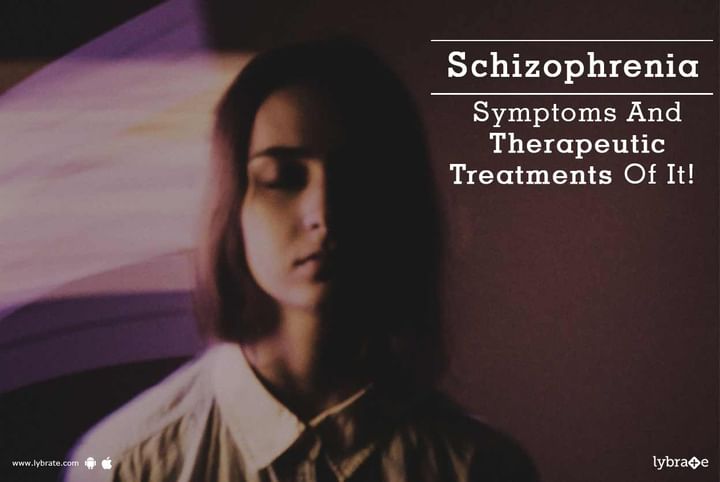Schizophrenia - Symptoms And Therapeutic Treatments Of It!
Schizophrenia is a neurological disorder that affects an individual’s ability to feel, think, or behave properly. Schizophrenia makes it hard for a person to tell reality from fantasy.
The symptoms of schizophrenia are:
• Hearing voices in the head
• Hallucinations
• Fearfulness
• The urge to withdraw from society and social activities
• Difficulty concentrating
Although one can control the symptoms of schizophrenia with antipsychotic drugs, therapy can drastically improve their quality of life. The therapy combines both counselling and medication. Several types of therapy can help a schizophrenic. The most commonly practised are:
This is a kind of interactive therapy session, which works only if a collective relation between the therapist and the individual suffering from schizophrenia is established. It is about analyzing the problem and setting goals to overcome it.
• The therapist focuses on the psychotic elements of schizophrenia (illusions and hallucinations) and helps the schizophrenic separate delusions and reality. It starts simply with learning to de-stress. CBT includes behavioural experiments, reality tests, cognitive restructuring.
• The schizophrenic is taught to avoid being confrontational and not to fear the psychotic experiences. Therapy helps strike a balance between the two extremes of psychotic and non-psychotic experiences.
Art Therapy
Art Therapy acts as a unique medium of expression for a schizophrenic.
• A person suffering from schizophrenia often finds it difficult to express himself/herself. With the patient guidance of a therapist, the individual uses paint, clay or other materials to voice their thoughts, feelings and fears.
• Art therapy also incorporates music, poetry, drama (any art form that the schizophrenic is comfortable with). Art Therapy works in groups as well. Interacting in a group teaches social skills. Communicating with people suffering from similar problems helps them get a better perspective and reduces the symptoms associated with the condition.
Families are often confused about how to deal with the symptoms of schizophrenia. Family therapy is about establishing a bond between the schizophrenic and his/her family.
• Most importantly, bonding with the family helps gives an emotional boost to the individual. Knowing that she/he has the family’s love and support brings down hallucinatory episodes. Surveys suggest that family therapy helps improve the quality of life for a schizophrenic.
Therapy can help suppress the terrifying hallucinations and illusions and help a schizophrenic cope with his/her condition. However, at the end of the day, what a schizophrenic needs more than therapy and anti-psychotic drugs are your understanding and support.



+1.svg)
